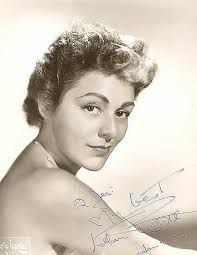The Singer's Spirit
Menu
|
By Lisa Houston Elisabeth Schwarzkopf, one of the greatest singers of the twentieth century, was a Nazi. Should I have said differently? Just, “she was a Nazi?” Or maybe just, “she was a great singer?” Does it matter that her motive was probably intense ambition rather than a particular hatred of Jews? Does it matter that for her whole life, even after 1981 when facts began to come to light, she lied, avoided the topic, and issued denials? These are good questions, and after Russia’s recent invasion of Ukraine, singers, opera lovers, and opera journalists are revisiting them. Two great Russian artists, Conductor Valery Gergiev and soprano Anna Netrebko, have both been strong Putin supporters for many decades. Now, after careers full of stunning achievement, they are about to experience something new: failure. They simply will not or cannot seem to find the words needed to assuage the broader operatic community. Gergiev has been fired and the Munich Philharmonic for refusing to denounce the war, and engagements with other companies have been cancelled. His agent fired him. Netrebko, who eventually published an anti-war post without denouncing Putin, has cancelled her upcoming performances, before others had a chance to do it for her. 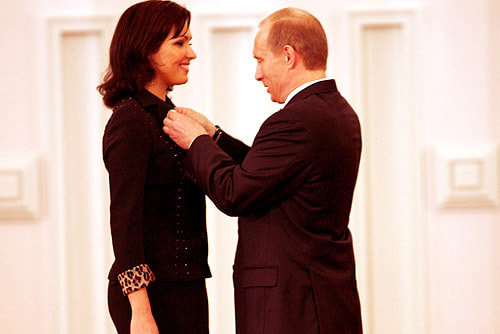 Opinions vary. The Süddeutsche Zeitung (Munich’s largest newspaper) had an opinion piece denouncing Gergiev's firing, calling it a “trauriger Akt”, a sad act. An angry post of Netrebko's (which she later deleted) complained that people in the West, safe in their homes, have no right to judge those living in other countries. (She’s not entirely wrong. One only had to watch the figure skating in the winter Olympics to see what kind of pressure can be brought to bear on a performer under Russia’s current regime. Although Netrebko herself is an Austrian citizen.) Still, the rant was off-brand for the singer and was deleted, and at the time of this writing her Instagram account has been made private. The backlash for both has been severe, and may be just beginning. Meanwhile, singers from other eastern European countries, such as mezzo-soprano Elina Garanča from Latvia, and tenor Piotr Becszala from Poland, both mega-stars, have absolutely denounced the war and cut ties with Russian organizations. For those of you who think that in the face of global events the action or inaction of a few musicians doesn't matter, I respectfully disagree. Regimes like Putin's do not succeed in a vacuum. Traditionally, vile dictators must be bathed in glory. It distracts people from their atrocities. Look at the shiny object over here! Pretty! Netrebko and Gergiev, as great artists and glamorous figures, have been two of Putin’s greatest enablers. Both have stood by Putin at key strategic moments, most notably in 2014 when Russian separatists took over Crimea. Back then, despite a few protests against Gergiev, opera companies and producers let it slide. But opera has grown up a bit since then. In the wake of BLACK LIVES MATTER, companies have begun to face the fact that with all white board members, almost all male management and musical direction, they are not as a-political as they thought. In recent years, opera companies have added repertoire by diverse composers. There have been staff changes. Some companies have added new departments as San Francisco Opera did with its “Department of Equity, Diversity, and Community.” In the aftermath of the invasion of Ukraine, companies are responding. Time will tell which statements manifest as meaningful actions. And as always, silence is its own response. There have been cast changes, cancelled performances, and promises for the future. The Deutsche Oper in Berlin, and many others, have posted the Ukrainian Flag on their websites. At a performance of Wagner in Madrid, the coffin of Siegfried was draped in a Ukrainian flag. Peter Gelb of the Met made a strong statement, while others, I won’t name names, you know who you are, have said so little they wouldn’t have exceeded the old twitter’s character count. It makes me wonder about the behind the scenes discussions going on, when at the best of times, not to mention Covid times, opera companies are juggling catastrophes. For many decades in the mid twentieth century, my grandfather, James Brosnahan was the business manager of the Boston Symphony Orchestra. Back then, perhaps as now, it was a catchall job. Somewhere in the family archives is a picture of Grandpa standing in front of Symphony Hall on Massachusetts Avenue. A huge truck has crashed into the front of the building. That’s the kind of thing opera and orchestra managers have to deal with. The unexpected disaster of the day. I didn’t really know my grandfather, and you can’t tell in the photo what he is thinking about this huge truck smashed into the building. But I have a feeling there are a few opera managers today who know how exactly how he feels. 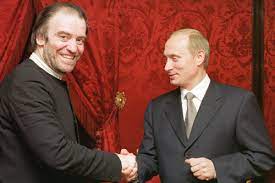 For an individual musician, on the other hand, there are a thousand disasters you could confront every day, and don’t. On one level, how can anyone go around singing arias while people are starving? While malaria is killing millions? While (fill in the blank with your own most disturbing current event.) But when you are a musician, you must learn to put things aside, and focus on your art. In a sense, you build a wall. You close the practice room door. As one technique advises, you keep a piece of paper and pencil on the piano, and when you think of that essential thing that absolutely has to be done, you write it down, to do it later. It’s a “Not Now” list. Now is for practicing. And frankly, the more successful you are, the better you are at keeping that artistic space sacrosanct. So, one can empathize with artists like Netrebko, who lurch and falter, and fail to act when the time comes. They’re good at looking away from the human capacity for brutality and focusing on the human capacity for beauty. That’s what it means to be a musician. That’s the choice you make. Sometimes they’re not so good at turning around to look the other way. Even so, Netrebko’s “I’m an artist, not a politician” line has worn thin. It sounds as if she sees herself as Tosca in Act II, saying “I lived only for art, why, oh why, has God abandoned me this way?” A contemporary of Schwarzkopf, the great German bass Hans Hotter never joined the Nazi party. He stayed in Germany throughout the war, singing, though he refused to sing at Bayreuth in 1940 in protest. On one of his famous Lieder recordings you can hear bombs going off in the background. Though it must also be noted that things were doubtless different for a beautiful young woman, especially around the notoriously lecherous Goebbels, who was the head of the opera company in Charlottenburg at the time Schwarzkopf’s career began. Composer Richard Strauss and conductor Wilhelm Furtwängler also never joined the party. Nor did Viennese conductor Karl Böhm. But in 2015 the Salzburg Festival added a plaque to the concert hall named for Böhm which states, in part, that Böhm “was a beneficiary of the Third Reich and used its system to advance his career.” And that is where music lovers tend to fall. In our own version of “hate the sin, love the sinner,” we hate the sin, and love the singer. Let us not forget Callas, the one and only. Callas collaborated with the occupation in Greece during the second world war. Both she and her mother took the protection of Italian officers. But these facts stand alongside the music. They cannot erase it. (For what it’s worth, I thought Netrebko's Traviata was sublime. Gerviev's conducting of Berlioz Les Troyens at Carnegie Hall was as great a performance of classical music as I have ever attended.) Meanwhile, as horrible as the images coming out of Ukraine are, I know we are not seeing the worst of it. War reports, tend to show the refugees. But every society has people too weak or disenfranchised to even attempt to flee. The elderly. People in hospitals. Or people who refuse to leave their animals behind. (Would you?) It is terror of the utmost kind. Unimaginable horrors of war. As an animal lover, I know the kind of people who run animal shelters, and they’re not going to leave those animals. Even now, as reports come from shelters in Ukraine that the food supply is running out, they will stay. Those who helped give Putin a respectable sheen, do not have the same duty as all of us to speak up. They have a special duty to speak up, to undo some of the damage that they themselves have brought about by celebrating him. Netrebko and Gergiev have benefited for decades from the status, funding, and lavish praise of Putin himself and his regime. As the San Francisco Chronicle’s Joshua Kosman put it with regard to Gergiev, “now that bill has come due.” Kosman Article Additionally, I’m not in a hurry to be overly praising of those who cut ties with Gergiev and Netrebko now. The opera world is agist, and always in search of a money-making celebrity. Would these companies have been so quick to cut ties if it were a fifty-six-year-old conductor and a thirty-eight-year-old singer as they have been with a sixty-eight-year-old conductor and a fifty-year-old singer? We don’t need to guess about this. Remember 2014. Nobody fired them then. They were at their peaks. Excuse me, my cynicism is showing. There is another dynamic on display here. For some singers, there is a crazy level of ambition, which Schwarzkopf doubtless had, a fervor which often includes an almost slavish devotion to the conductor. Even when she finally eked out an anti-war post, Netrebko posted it alongside a picture of her with her beloved and recently fired colleague, Gergiev. How can you explain this devotion to someone who is not a singer? Perhaps the best way is to tell a joke that singers tell. It’s somewhat horrific, but that’s the point, so here goes. A singer returns home to find that her house has been burned to the ground, in the version I was told, with her cat inside. She stands on the street looking at her destroyed home. A neighbor comes over to talk to her, and explains that the culprit was the conductor. “He came and burned the place to the ground,” the neighbor says. At this the singer beams and blushes, responding, “the conductor came to my house?!” Netrebko’s post with Gergiev may embody this cliché in the extreme. But for all of us singers, it's a value system we can fall into, and one we'd do well to revise, if not abandon. So, what is it fair to expect from an artist, as these events play out in real time? I don't know. But at the very least, we might hope our artists would cease to use art as a shield. As pianist Igor Levit said in a recent twitter “duet” with Netrebko, “never bring up music or your being a musician as an excuse. Do not insult art.” (Here is a link to my previous interview with Levit. Igor Levit Interview ) Singers are human, and make all kinds of choices, good and bad. If history is any indication, those choices will be remembered.  Vasyl Slipak Vasyl Slipak I will give the last word to a singer. His name was Vasyl Slipak. Born in 1974 in Lviv, Ukraine, he sang from childhood, eventually studying at the conservatory, and winning honors for his rich basso voice. He embarked on a successful career at the Opera Bastille in Paris. In 2014, when Russia began what is now known as the War in Donbass, he left his operatic career and went home to fight for his country’s sovereignty. Early in the morning of June 29th, 2016, at the age of forty-one, Vasyl Slipak was killed by a Russian sniper. In 2017 he was posthumously awarded the title “Hero of Ukraine.” Link below: Vasyl Slipak sings the Torreador Song from Carmen.
0 Comments
There’s been much discussion lately on what some are calling the policing of women’s voices, as several articles have surfaced on the topic of “vocal fry” which is a gravely sound that results when someone speaks in a range lower than their vocal cords can function properly. Note, vocal fry is not a vocal range, it is the description of vocal cord function, or rather, malfunction. As a singer and voice teacher for the past quarter century, I offer this post to the discussion, which I hope continues in public discourse and awareness.
There's a distinction to be made here. Observing women abusing their voices is not the cultural policing that results in vocal misuse. (Naming the problem, is not the problem. The problem is the problem.) True cultural policing or oppression is enacted by deep-rooted, longstanding expectations of women, placed on them by society. It can also be done on an individual basis, by overtly by critiquing women’s voices. I have found over the years that developing the strength of your best, most powerful voice is a tremendous path for growth, but also that the critique of the voice is something to be done with extreme care, even with the best intentions. The discussion of this issue is a sign that we are beginning to challenge that oppression, so amen to that. Now, on to aspects of vocal use and development. A voice may be forced into a higher or lower range because of a person's desire to please those around them, either to be taken seriously (be more like a man) by making it lower, or to be considered more "feminine" or appropriate by making it higher. One of the reasons the study of the voice is so difficult is that it is so intensely personal. The voice develops based on your culture, your family position, and your gender. And all day every day, you are physically defining yourself and building an ego identification with your sound, therefore a critique of the voice feels like a critique of the person, and it is very easy to do harm. I recently taught a voice class at a law school, where a passionate young woman with a vibrant voice confided in me that one of her teachers had told her she would "never be taken seriously with that voice.” You could see the hurt in her eyes from this remark, and I wish I could say her experience was unusual, but I've seen this again and again, and I've had people come into the studio and tell me what someone said about their voice SIXTY years ago, and it still bothers them! From a vocal health point of view, vocal fry resulting from artificially lowering the voice is likely to do more damage than speaking in high or nasal way, which granted is annoying, but doesn't harm the cords in the way fry does. Meanwhile, I always hate it when I hear a parent say "use your inside voice!" I want to say, "Hey, I'm an opera singer. THIS IS MY INSIDE VOICE!" That said, I too worry when I hear a grown woman using an obviously girlishly high voice, which is not her adult sound. But in the end, the voice, whatever it is, is a reflection of the person, and if a person is "immature" in this way, then there is some reason for it, some challenge or difficulty, so compassion is the only road to take. I have another rant about NPR and vocal fry, very common among women starting out in news, but I’ll leave that for another time. Mainly I think it is a result of lack of confidence but also a lack of training. Frankly I wish that the development of the voice was more socially acceptable and valued. That it was understood, not just from a vocal point of view, but as form of personal development. Culturally, we are fine with people obsessing about developing and caring for their bodies, why not the voice? Anybody who heard me in Anything Goes in high school, and hears me sing Wagner today will attest: your voice is not just the voice you were born with. Your voice is a gift, and there is no shame, and much pleasure to be found in cherishing and developing that gift. By Lisa Houston
I taught a voice class for public speakers this morning, and most of the vocal issues were quite common, and not that difficult to fix. Below are the solutions I gave to these particular people today. They may not always be the right fix for the problem listed. Still, I thought you might benefit from seeing these examples. In no particular order, here’s a list of my critiques with a possible solution. Issue: Voice is pleasing, but in a way that puts the listener to sleep. Solution: Make sure to practice variety, both of pitch and also emotion. Issue: Over-serious tone and facial expression that dampens vocal resonance and just generally puts people off. Solution: Lighten it up a bit. Smile occasionally, which lifts cheeks and warms tone, and generally breaks down walls between speaker and audience. Issue: Genuine nerves resulting in temporary memory loss and flutter in voice. Solution: Breathe! And practice, practice, practice speaking in front of people. This one can take some time, but in general, if you care about what you’re saying, or singing, you will eventually have most of your focus on that and the nerves will disappear. Don’t over-focus on nerves as the issue. That will only make things worse. And certainly DO NOT label yourself as having a problem with nerves. Stay focused on content (words or music) and forge ahead! Issue: Getting over a cold but also perhaps a chronically tired voice. Solution: Make sure you are not artificially lowering the pitch of your voice, especially women, into the “vocal fry” zone. Speaking in the wrong range is more tiring, and you will also get used to that rasp and gravel, and then you will gravitate towards it, so it becomes a vicious cycle. So play with pitch, especially by moving the ends of sentences upwards. Issue: Difficult to understand. Solutions: 1. Slow down. Pronounce every part of every word, consonants and vowels. 2. Do tongue agility exercises (la na ta da) as enunciation with the tongue is generally more easy to understand than when articulation is done with the jaw, or not at all. Also be sure to finish each word. Issue: Tired voice. Solution: Get enough rest. Hydrate more. Take some vocal rest, but warm up before you speak. Issue: Tight sounding voice, bit of rasp. Solution: This person had a dance background and like many dancers, had been trained to hold in her stomach, and secondly, like many people who work on a computer a lot, her head was forward out of alignment, causing a strain on the neck. The solution for dancers with this training is to soften the backs of the knees with a very slight bend, which creates a different position of the pelvis, and allows a deeper, fuller breath. And for the computer neck, I encouraged her to remember her dance training to elongate the back of the neck. This shortens the front of the neck providing a better position for the larynx. Issue: Continuous rasp of the voice. Solution: It turns out this person had a sports injury to the larynx and felt that perhaps the rasp was permanent due to this. But he was also a serious weight lifter, and many weight lifters continually re-injure their voices because the vocal cords come together when lifting weights. In fact, this is what vocal cords were originally for, to increase thoracic pressure in childbirth or heavy lifting. Because I thought there was a possibility that it was not permanent damage but rather a continuous re-injury, I instructed this person to be aware of his throat and keep his larynx relaxed when lifting weights. Some people have a continuous rasp due to a previous injury or overuse that cannot be corrected, but it is important to track down the real cause, and if possible, correct it, or if it is permanent, you want to optimize the vocal technique so that the problem doesn't become worse over time. In the case of weight lifting, the damage can be done even without making sound, so many people don’t realize you can hurt your voice weightlifting, or in other similar forms of exertion. With all of these students, I reminded them that a critique of the voice can be very personal, as we are often taught to believe that our voice just is the way it is and cannot be developed or changed. Think of the phrase “you have a nice voice,” as if that's that. But even if you are not a singer, there are ways to develop and improve your voice, and if you’re going to make your living talking, and others are going to pay you to do it, then it’s worth it to do a bit of self-examination on the subject, and find some ways to improve and develop. And besides, it’s fun! L.H. This is a handout I created for when I teach a group of non-singers or beginners the fundamentals of vocal care. It includes thoughts on diet, overuse, and misuse. This form may be copied or reprinted for free distribution without permission of the publisher. Otherwise, all rights reserved. ©Lisa Houston 2016
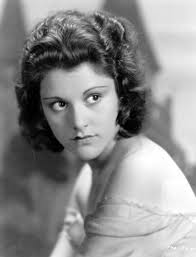 Lillian Roth Lillian Roth How does my twelve-year-old niece know how old Olivia Newton John was when she starred in Grease? Or how old Shirley Temple was when she made The Little Colonel? “Google!” She says, enthusiastically. I don’t think she got it from me, but Aunt Lisa also loves reading singers bios online. Leaving aside that the Internet isn’t always a reliable source, it has never been easier to see the entire arc of a performer’s lifetime. Come across a singer you like? In five minutes you can know where she’s from, where she went to school, how her career began, and ended. What’s the use of reading these bios? Well, if we so choose, there is a plethora of ready-made morality tales for us to study and reflect upon. We can see not just a pinnacle of success, but what happened after, or didn’t. Billie Holiday, Callas, Piaf, Amy Winehouse, Judy Garland. These stories we know, especially because of their tragic endings. Others we hold in godlike status for long lives celebrated as great divas. But many singers’ stories are complex. Neither triumphs nor disasters, they are difficult and celebratory, sometimes inspiring, other times discouraging. One such story, is that of Lillian Roth, born on this day, December 13th, in 1910. Lillian Roth was aggressively groomed by her parents to be a child actor and suffered greatly emotionally as a result. She shot to a degree of celebrity, struggled with alcoholism, fell into obscurity, became a celebrated author, and then returned to some success as a performer before her death from a stroke in 1980. I discovered her recently, watching an episode of the old game show, “What’s My Line” from the 50’s. I was struck by her charisma and genial nature.
Reading up on her life, one sees a huge gap of dates in her movie roles, but it is during that absence that she made her greatest mark in film. At a time when celebrities rarely if ever spoke of addiction, Lillian Roth wrote a tell-all bestselling autobiography, chronicling her struggles with alcohol. The hugely popular book was made into the 1955 film, “I’ll Cry Tomorrow, starring the fabulous Susan Hayward. Hayward was nominated for an Oscar for the role.
I don’t want to write much more. I just wanted to highlight these two videos for you, the one of the shining, bright young woman, the other of the much older woman showing resilience and strength of spirit. (It makes me think of Elaine Stritch and her wonderful rendition of “I’m Still Here.”)
Like my niece, I will continue to be fascinated reading performers’ life stories, and I’ll take them to heart. If nothing else, they show us that life is long, if you’re lucky. Singers so often get focused on the next performance, or the next part, especially this time of year when many singers are busy, busy, busy with holiday gigs. But once in a while we should all remember to take the long view. To take care of the singer, as well as the song. Two things to share today:
My new interview at San Francisco Classical Voice with inspiring artist Leonidas Kavakos Thoughtful Virtuoso And a short post about the aria "Recondita armonia" from my alter-ego Lisa Houston Writer Enjoy!  I've been happily toiling away to create a new series of articles with amazing wine writer, Meg Houston Maker. I think it'll be a ton of fun. I particularly enjoyed writing the Overview Essay, and considering how the composers enjoyed wines, and lovingly decorated their operas with references to them. 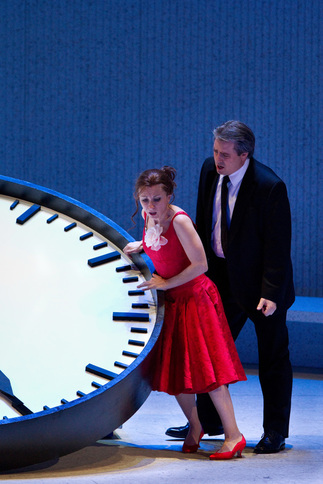 Natalie Dessay as Violetta and Matthew Polenzani as Alfredo in Verdi's "La Traviata." Photo: Marty Sohl/Metropolitan Opera Natalie Dessay as Violetta and Matthew Polenzani as Alfredo in Verdi's "La Traviata." Photo: Marty Sohl/Metropolitan Opera Get started on the main page, La Tazza e il Cantico. Or just jump right in. We kick off with Verdi's Il Trovatore and a grape grown on the volcanic Mt. Etna! A Trovatoran Wine. Happy reading. The third week in October is a big week for Wagnerian anniversaries. As of October 20th, 1842, Richard Wagner’s reputation was established with the very successful premier of his opera Rienzi, in Dresden. Tannhäuser would debut three years later, also in Dresden, on October 19th, 1845.
Wagner completed Rienzi in 1840, and then changed styles quite a bit in writing Dutchman in 1841. At the time, Wagner was desperate to create a name for himself at the center of European operatic life. Wagner and his wife Minna lived in Paris and he tried to achieve a Paris premier for Rienzi, but failed. His letters to the reigning composer of opera in Paris, Giacomo Meyerbeer, are almost painful to read in their obsequiousness. He calls Meyerbeer his “Lord and Master.” He refers to himself as Meyerbeer’s “Property.” Rienzi, entitled a “grand tragic opera,” inspired conductor Hans von Bulow to say “Rienzi is Meyerbeer’s best opera.” And yet this devotion and emulation didn’t work. Paris was, and would remain for Wagner synonymous with failure. Wagner rode on the wings of Rienzi’s success in Dresden, conducted the premier of Flying Dutchman there in January of 1843. He was appointed co-Kapellmeister, in February of that year, and he began composing Tannhäuser that summer. Also that month in February, 1843, Wagner is clearly over his Meyerbeer phase, having turned on the man whom he did not feel had done enough to help him. In a letter to composer Robert Schumann, Wagner responds to Schumann’s opinion that Flying Dutchman was, in some ways “Meyerbeerian.” Wagner says of the style to which he previously prostrated himself, “the merest smell of which, wafting in from afar, is sufficient to turn my stomach.” This bitterness towards Meyerbeer would be evidenced in his anti-Semitic essay “Jewishness in Music” which was published in 1850. In 1861, the Parisian premier of Tannhäuser would be one of the greatest fiascos in musical history. Wagner completed Tannhäuser in April of 1845, and then, in the summer before its premier on October 19th, he wrote the prose sketch for Lohengrin, and also Die Meistersinger. By 1848, Wagner had completed Lohengrin. Also that year, Wagner had begun the prose for his Ring cycle. In 1849, Wagner’s role in political upheaval in Dresden led to a warrant being posted for his arrest, and he fled, eventually ending up in Zurich. This return to his home region of Saxony for those years, from 1842 to 1849, was a triumphant one for Wagner, who was born in Leipzig in 1813 just six months before the famous battle in which Napoleon was defeated. One wonders what would have happened had Rienzi premiered sooner to great success, rather than Dutchman being written during the frustrating delay. The link below is a brief radio story offering some interesting thoughts on why Rienzi is not more frequently performed, along with excellent musical excerpts, and links to longer excerpts. The guest is F. Paul Driscoll of Opera News. More writings on Tannhäuser are coming in the near future. Stay tuned. Audio of WQXR Story on Rienzi with F. Paul Driscoll
“If you consider that I was born in a family where everyone was singing ‘Di quella pira,’ my mother, father, grandmother, you can understand that the responsibility of my job is very heavy, but not a big pain. It’s very good to have this. It’s exactly what I was looking for when I was born. It’s so natural for me, not complicated.” Pavarotti loved Mario Lanza movies and said he spent hours in front of the mirror. “I stood there all the time singing ‘La donna e mobile,’ and ‘di quella pira.’ Why not? Everybody in my country did that at the age of six or seven. The TV wasn’t invented yet. The opera was the most important thing our city.” Indeed, the opera company of Modena, founded in 1841 in Modena was renamed after the tenor’s death as “Teatro Comunale Luciano Pavarotti.” Pavarotti’s debut role was Rodolfo in “La bohème” at Reggio nell’Emilia in 1961. It would become a signature role for the tenor. In 1977, Pavarotti sang Rodolfo opposite Renata Scotto’s Mimì for the Met’s premier Telecast. Other signature roles include Alfredo in “La traviata”, Radames in “Aida,” and Cavaradossi in “Tosca.” In 1990, soccer and opera collided when FIFA chose Pavarotti’s 1972 recording of Calaf’s aria from Puccini’s Turandot as its theme song for the World Cup. That same year saw the famous Three Tenors concert in Rome, welcoming Pavarotti’s friend and colleague José Carreras back to the stage after successfully battling Leukemia. The concert, featuring Pavarotti, Placido Domingo and Carreras, raised money for Carreras’s International Leukemia Foundation. The three later toured, bringing opera to the mainstage of popular culture to a degree it had not enjoyed for decades. I heard Pavarotti live only once, as Rodolfo in San Francisco in 1989. His Mimì? Mirella Freni. It was the night I became an opera fan. That production is available on DVD. Pavarotti left so many outstanding recordings. My recent favorite is his Traviata under Levine, with Cheryl Studer as Violetta (available on DVD, Spotify etc.) Here is Pavarotti in fine form with one of his greatest and most frequent partners, Joan Sutherland in the duet from Donizetti's "Lucia di Lammermoor." L.H. *Some of the information for this post, including this quotation, was found in an enjoyable collection of essays "The Tenors," edited by Herbert H. Breslin. The Pavarotti essay is written by Stephen E. Rubin. Other tenors included: John Vickers, Richard Tucker, Franco Corelli and Placido Domingo. |
|
||||||||||||
©Lisa Houston 2022

